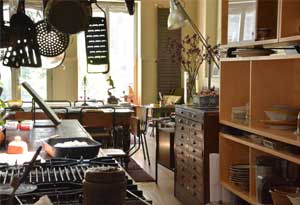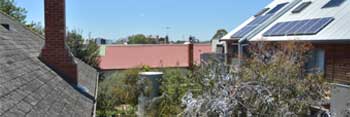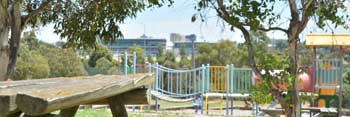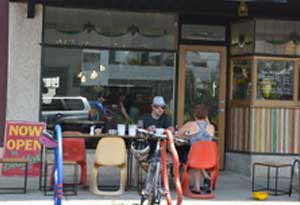 WestWyck is living
WestWyck is living
WestWyck has a mission to influence. Through provision of a demonstration ecovillage model, it aims to support and facilitate the evolution of sustainability policies and practices that relate to the built form within an urban community. It targets change at the State Government, local government, water and energy authority and private sector levels.
WestWyck participates in various public open day schemes like Museum Victoria’s Water Smart Homes project, the Australian Open Gardens Scheme and ANZSES Sustainable House Day. In 2013 WestWyck hosted the Robin Boyd Foundation Association Open Day and received in excess of 400 visitors.
WestWyck frequently contributes to conferences both through direct participation and through hosting site visits for conference participants. The conferences have included development industry, professional association, local government and environmental events.
WestWyck has attracted a great deal of media attention at a time when the general awareness of the impact of our built environment on greenhouse emissions is on the increase.
WestWyck features in many school text books and other educational publications and students frequently use WestWyck as a resource for research projects. Currently one student is basing a PhD thesis on WestWyck and Christie Walk in Adelaide.
WestWyck has been recognised through several awards. In October 2003 the Clean Air Society of Australia and New Zealand’s recognised WestWyck for 'making a significant improvement to the quality of our environment'. WestWyck won the award for ‘Business Enterprise’ at the United Nations Association of Australia’s ‘World Environment Day Awards in 2004’. WestWyck achieved a special commendation at the Australian Property Institute, Victorian Division’s 2008 Environmental Development Award. In July 2010 Multiplicity Architects and Designers achieved the 2010 Victorian Interior Architecture Award for their creation at WestWyck. WestWyck achieved its award of greatest personal significance in June 2011 when it won the Peter Szental Award for Sustainability Entrepreneurship a new award made by the United Nations Association of Australia (UNAA) as part of its United Nations World Environment Day awards. The late Peter Szental had been a great supporter of and mentor to WestWyck and its developers.
In 2013 Lorna Pitt, co-developer at WestWyck, was honoured locally by Moreland City Council as part of its ‘Honouring Women’ program for her work at WestWyck.






 Art work in the grounds of WestWyck
Art work in the grounds of WestWyck
 Brunswick, perhaps the most diverse villages on earth
Brunswick, perhaps the most diverse villages on earth
 Locals enjoying their planet
Locals enjoying their planet
 The entire project grows
The entire project grows
 Great care to ensure care free
Great care to ensure care free
 WestWyck is living
WestWyck is living